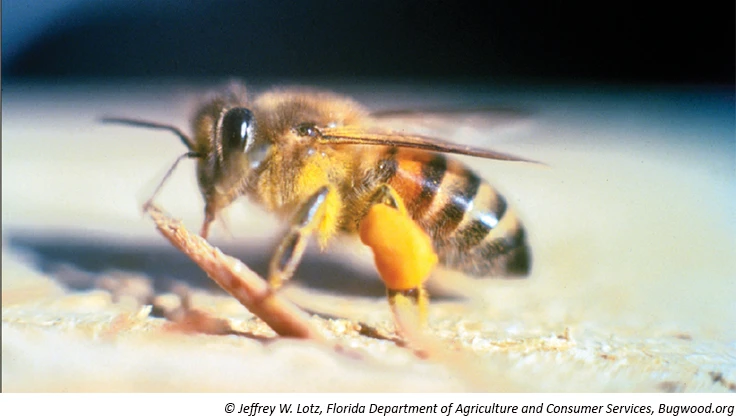
Scientists from the University of California, San Diego recently collected hundreds of bees around the Golden State to determine how far north hybrid honeybees, or Africanized bees, have spread since they first arrived in the state in 1994. They found that Africanized bees — which possess genes from both European and African honeybees — now live as far north as California's delta region (about 25 miles, or 40 kilometers, south of Sacramento). And in the southern part of the state, so-called "killer" bees run the show, Live Science reports. About 65 percent of the honeybeesthat buzz around San Diego County have a mix of European and African genes, the researchers found.
"The pattern of Africanization we documented in San Diego County and elsewhere in California appears consistent with patterns previously documented in Texas, where Africanized honey bees first appeared in the United States," Joshua Kohn, a professor of biology at UC San Diego and co-author of the new study, said in a statement.
While Africanized bees have taken up residence throughout the American South, Southwest, Southeast and Western coastal regions, their ability to set up permanent colonies in the northern parts of the country seems to be limited by cold temperatures during the winter months, Kohn said. However, higher temperatures caused by global warming could mean that killer bees may continue to push north in the coming years, he added.
Click here to read more.
Source: LiveScience
Latest from Pest Control Technology
- Donny Oswalt Shares What Makes Termites a 'Tricky' Pest
- Study Finds Fecal Tests Can Reveal Active Termite Infestations
- Peachtree Pest Control Partners with Local Nonprofits to Fight Food Insecurity
- Allergy Technologies, PHA Expand ATAHC Complete Program to Protect 8,500 Homes
- Housecall Pro Hosts '25 Winter Summit Featuring Mike Rowe
- Advanced Education
- Spotted Lanternflies, BMSBs Most Problematic Invasive Pests, Poll Finds
- Ecolab Acquires Guardian Pest Solutions





